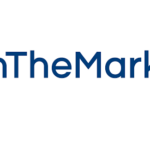Nimbus report gives oversight on retail market post Covid
THE impact of COVID-19 is still being felt on the high street four years on from the first lockdowns, with ongoing implications for retail real estate, as we saw several years’ progress accelerated into just one. However, with challenges come opportunities – which are revealed in the latest industry report from leading property intelligence platform Nimbus®.
Post-Covid, businesses have had to adapt and change the profile of retail footprints, with many taking smaller units in town centres, and larger ones in out-of-town retail parks. For those that haven’t changed their offering, there have been a raft of closures and administrations – with Wilko and The Body Shop being two of the biggest names of late.
The “Retail – State of the Market Update” report – which is the result of collaborative efforts with a range of property and retail experts – casts a spotlight on the changes happening across a rapidly-evolving landscape. This includes how the introduction of Class E has allowed uses to move back into the high street that had otherwise been driven out by national retailers paying higher rents on strong covenants.
Paul Davis, (Pictured above) co-founder at Nimbus®, said: “There are a number of areas in the market – like food retail – that continue to boom. In the case of drive thrus and roadside retail, we have seen strong competition for sites, that has also driven land values up to record levels. Naturally, the evolving market means that not every impact or route forward for the retail estate market is completely clear cut, but there certainly are opportunities.”
“Class E’s introduction is returning uses historically removed from the high street – like doctors, dentists, and nurseries – and creating the opportunity for town centres to become more community-focused once again. Meanwhile, there is also opportunity in the right places for the right buildings to see elements – usually uppers – repurposed into residential where it is viable.”
Nimbus’ report details an increase in councils looking to create mixed-use developments in their own high streets, where in some cases local councils have acquired their local centres and are progressing schemes through joint ventures with the private sector, which creates the question of what order various elements should come forward and how this impacts overall values.
Paul said: “It’s a case of what comes first, the chicken or the egg? Residential needs the buzz of retail and leisure operators to sell well, but those operators need the residential occupiers to drive viable trade – so there remains a balance to be found and in some cases this issue is being resolved by councils taking a long term view on their local high streets.
“There has also been a renaissance in local shopping, which along with the “right sizing” of retail areas, re-basing of rents and consumer demand to ‘shop local’ is positioning independent retailers as the main tenant demand. In turn, this is seeing a change in how landlords are approaching buildings and units to rent, putting in more spec and providing an element of fit-out to entice independents in, which typically want to be in and trading as quickly as possible.”
The “Retail – State of the Market Update” report saw input from property and retail experts from Avison Young, FHP, GCW, Lambert Smith Hampton, Siddall Jones and DWF, and is available to read see LINK. Nimbus® is a leading proptech company. An online property intelligence platform, using data drawn from thousands of reliable sources, it is the country’s most trusted one-stop-shop tool for property professionals. Providing all the information they need in one easy-to-use platform, it saves property investors, developers, and surveyors 80% of the time, so they can quickly find opportunities and connect with owners to land the best property deals.
Eight start-ups in Spring Accelerator Cohort Programme at Geovation
Press Release London April 2024 – It has proven to be an incredibly competitive year for applicants to join this year’s Spring Accelerator Programme. Made possible through the integral partnerships Geovation holds with Ordnance Survey (OS) and HM Land Registry (HMLR), it has become a magnet in attracting some of the most promising innovators in both the GeoTech and PropTech sectors. Over the years Geovation has helped to support more than 160 startups and retains an active community of over 2000 members, making it a spearhead within geospatial and a catalyst for entrepreneurialism.

The combined purpose of the accelerator is to provide meaningful growth opportunities for our founders to optimise their innovation strategy for commercial success. More specifically this support comes in an indispensable package that includes £20,000 equity-free funding, data access, bespoke mentoring, access to the Geovation Hub and exposure to a vast network of industry leaders.
Working with inspiring founders and groundbreaking startups is what Geovation is all about – and this group of founders will make a big impact on the world. I’m proud that we’ll be a small part of making this happen. Gareth Sumner, Head of Geovation
Our new PropTech startups
Utilising the specific access and support from HMLR are a new cohort of three property sector startups looking to revolutionise across conveyancing, house-hunting and property development.
Navro Compliance is revolutionising the conveyancing process through innovative online solutions. They are looking to launch with “ART”, Auto Report on Title, which is an AI tool that cuts down by at least 50% the time it takes for the Report on Title to be produced by the conveyancer.
Mappa Technologies recommends neighbourhoods and homes to house-hunters using AI & geospatial data. Guiding users through the journey, providing them the right insights, understanding and referrals. Mappa aims to partner with the industry to provide users a seamless journey, from dream to doorstep.
PlanningHub uses artificial intelligence and Large Language Models to sieve through property and planning data, simplifying searches to establish the planning feasibility of property development. Their platform analyses complex policies and past planning decisions, offering rapid planning guidance.
By offering our data, funding and mentoring to the new cohort over the next 12 months, we’re supporting the next generation of data-led PropTech entrepreneurs. We’re excited to work with them and see how they transform the property industry and beyond.Lynne Nicholson, Lead Product Manager (Data) at HMLR.
Our new GeoTech startups
With a focus on geospatial data and with keen interest from Ordnance Survey we welcome three funded and 2 non-funded startups to the GeoTech cohort who look to innovate across planning, infrastructure, retrofitting, construction and wildfires.
Planlab.ai is on a mission to invent AI-optimized collaborative planning to deliver infrastructure projects on time and budget. Their first product focusses on infrastructure and construction, designed to allow project teams to collaboratively bake in understanding of what drives project outcomes into the planning process.
SchemeFlow is a UK startup which is using Chat-GPT style AI to draft technical reports in the UK planning and construction industry, starting with transport planning. SchemeFlow’s technology accelerates the manual work that goes into drafting these reports, allowing technical consultants to do work that currently takes days in minutes.
Building Atlas has a vision to make a sustainable commercial real estate sector a reality. Using machine learning and big data to rapidly scale building retrofits, starting with a plan they generate in seconds. After all, the most sustainable building is the one that already exists.
TerraGrid is approaching the escalating global risk of wildfires that annually inflicts $50 billion in damages. Risk professionals in the insurance industry are looking for new means to manage this risk. TerraGrid delivers the best-in-class granular datasets & models on wildfires. Their products range from wildfire risk maps, relative risk scores & financial models.
Moonbility assists transport operators and infrastructure owners by simulating and visualising the impacts of asset failures and unavailability. Its AI-powered platform uses advanced geospatial analysis to provide clients with a comprehensive, human-ready single source of truth about their environments.
“We’re delighted to both provide support to and learn from the new GeoTech start-up cohort, who are bringing innovative thinking and pace to solving some substantive problems facing business and government in a range of sectors, using the power of geospatial data.”Jo Cutting, Head of Software Propositions, OS
This article was first published on https://geovation.uk/insights/introducing-our-next-startup-cohort/
Andrew Stanton’s PROPTECH-X ‘Proptech & Property News’ in association with Estate Agent Networking & News Now publications. #proptech #property #realestate #digitaltransformation #startups
Andrew Stanton Founder & Editor of 'PROPTECH-X' where his insights, connections, analysis and commentary on proptech and real estate are based on writing 1.3M words annually. Plus meeting 1,000 Proptech founders, critiquing 400 decks and having had 130 clients as CEO of 'PROPTECH-PR', a consultancy for Proptech founders seeking growth and exit strategies. He also acts as an advisory for major global real estate companies on sales, acquisitions, market positioning & operations. With 200K followers & readers, he is the 'Proptech Realestate Influencer.'


















